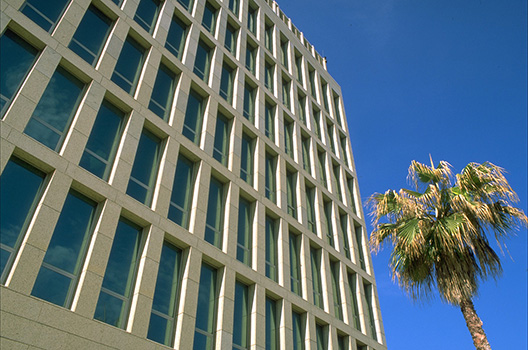 Since the breakdown of US-Cuban relations in the early 1960s, Cuba has experienced a self- and externally-imposed isolation from US-led global financial markets. While the socialist Cuban economy was able to sustain itself on foreign assistance from the Soviet Union during the Cold War, the economic hardships of the post-Soviet period have necessitated dramatic reforms in the Cuban system, most notably the legalization of small private businesses and political rapprochement with the United States.
Since the breakdown of US-Cuban relations in the early 1960s, Cuba has experienced a self- and externally-imposed isolation from US-led global financial markets. While the socialist Cuban economy was able to sustain itself on foreign assistance from the Soviet Union during the Cold War, the economic hardships of the post-Soviet period have necessitated dramatic reforms in the Cuban system, most notably the legalization of small private businesses and political rapprochement with the United States.
On July 12, 2015, the Adrienne Arsht Latin America Center hosted an event titled “Cuba’s Economic Reintegration: Is the Time Now?” to discuss Cuba’s involvement in the world economy and the potential benefits Cuba would gain from becoming a member of the international financial institutions (IFIs), including the International Monetary Fund (IMF), the World Bank, and the Inter-American Development Bank. The event was organized in conjunction with the launch of the Latin America Center’s newest report, Cuba’s Economic Reintegration: Begin with the International Financial Institutions, authored by noted economists Pavel Vidal and Scott Brown.
After opening remarks by the Center’s Deputy Director, Jason Marczak, former Secretary of Commerce Carlos Gutierrez delivered a keynote address in which he observed that Cuban economic development would require substantial inflows of foreign capital. Secretary Gutierrez further stressed that Cuba would only succeed in opening itself up to vital investment from abroad if Cuban policy makers recognized the importance of protecting profits and established sensible procedures for dealing with legal claims. On the controversial topic of reparations for property expropriated at the beginning of the Cuban Revolution, Gutierrez stated definitively, “If we are going to stay focused on the past, we will stay here for fifty years. It’s all about looking forward.”
Following the keynote address, Vidal, a professor of Economics at Pontificia Universidad Javeriana in Cali, Colombia, spoke to the audience in a pre-recorded video about the significant role that the IFIs could play in the economic development of Cuba by providing the Cuban government with access to foreign capital for development and training in best practices of economic management. This video address segued into a panel discussion on Cuban accession to the IFIs moderated by Latin America Center Director Peter Schechter with featured guests including Dr. Rafael Romeu, President and CEO of DevTech Systems and a former Economist for the IMF, Ignacio Lopez-Perea, the Head of Global Commercial Banking for BBVA, and Scott Brown, an author of the report and the former IMF Mission Chief for Albania.
The panelists engaged in a lively conversation on Cuba’s economic transition, the potential for further reforms, and the role of the international financial institutions in facilitating development on the island. Mr. Brown drew comparisons between the Cuban case and successful economic transitions in Vietnam and Albania, and expressed his optimism that the assistance of the IFIs could help Cuba stabilize its currency and promote economic activity. Dr. Romeu provided helpful insight into the nature of IMF missions in transitioning economies and argued that participation in the IFIs might help Cuba implement much-needed economic reforms, but he also noted the significant risk of galvanizing anti-reform incumbents if reforms are adopted too slowly. From his position in the business sector, Mr. Lopez-Perea described the attitude of cautious optimism he saw among many potential investors in Cuba, and reaffirmed the importance of the Cuban government guaranteeing property rights for foreign companies engaged in business on the island. Ultimately, the panelists agreed that economic reintegration could produce real improvement in the lives of the Cuban people, but that such change could only be brought about by concerted, courageous reform efforts from Cuban officials with the support of the international financial community.
Image: The US Interests Section, officially an annex of the Swiss Embassy, overlooks the seaside Malecón in downtown Havana. On July 20, it will become a full-fledged US Embassy once again, after 54 years. Photo: Larry Luxner
